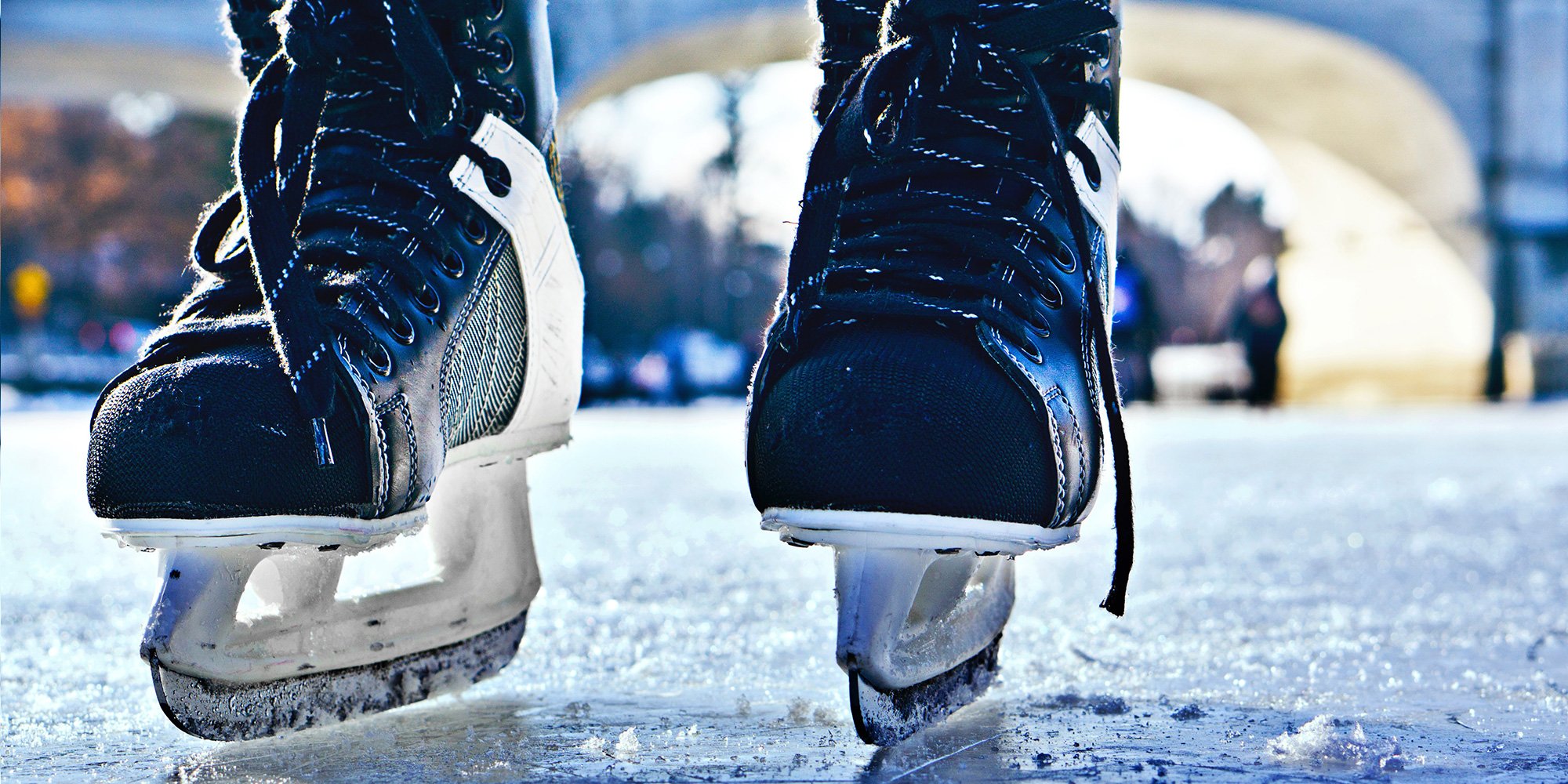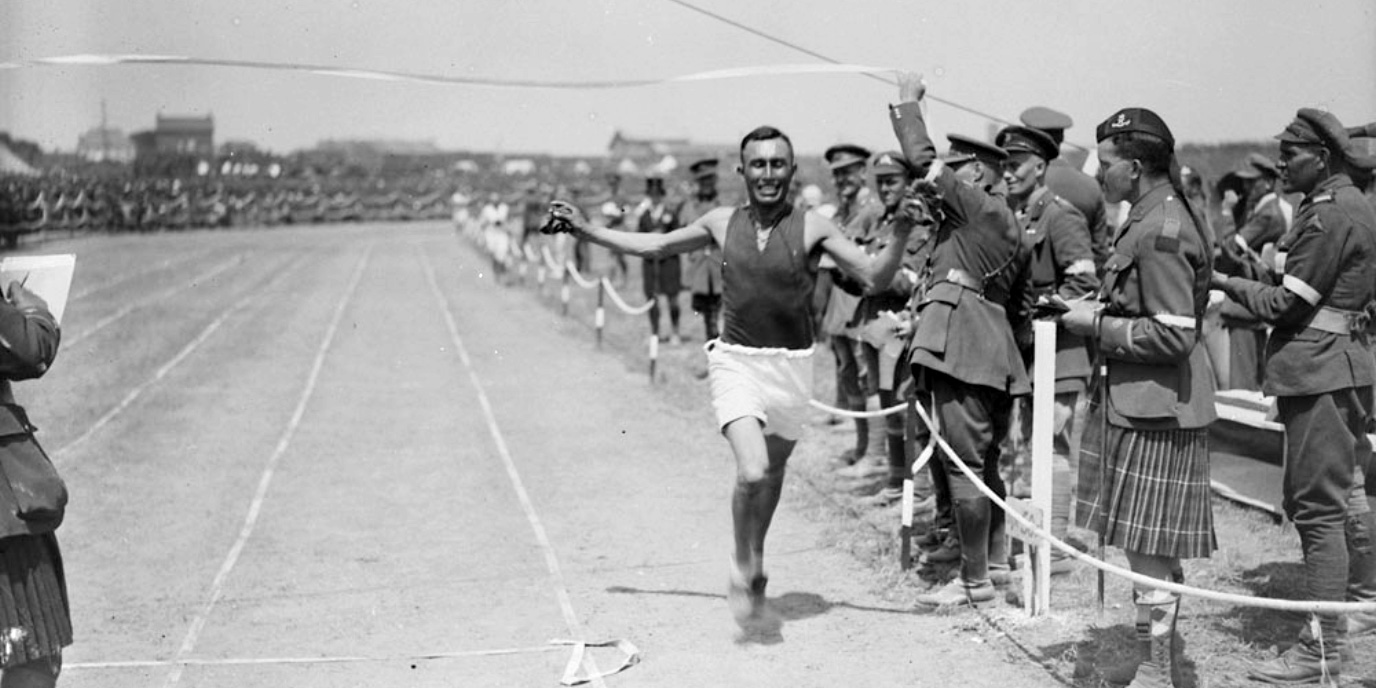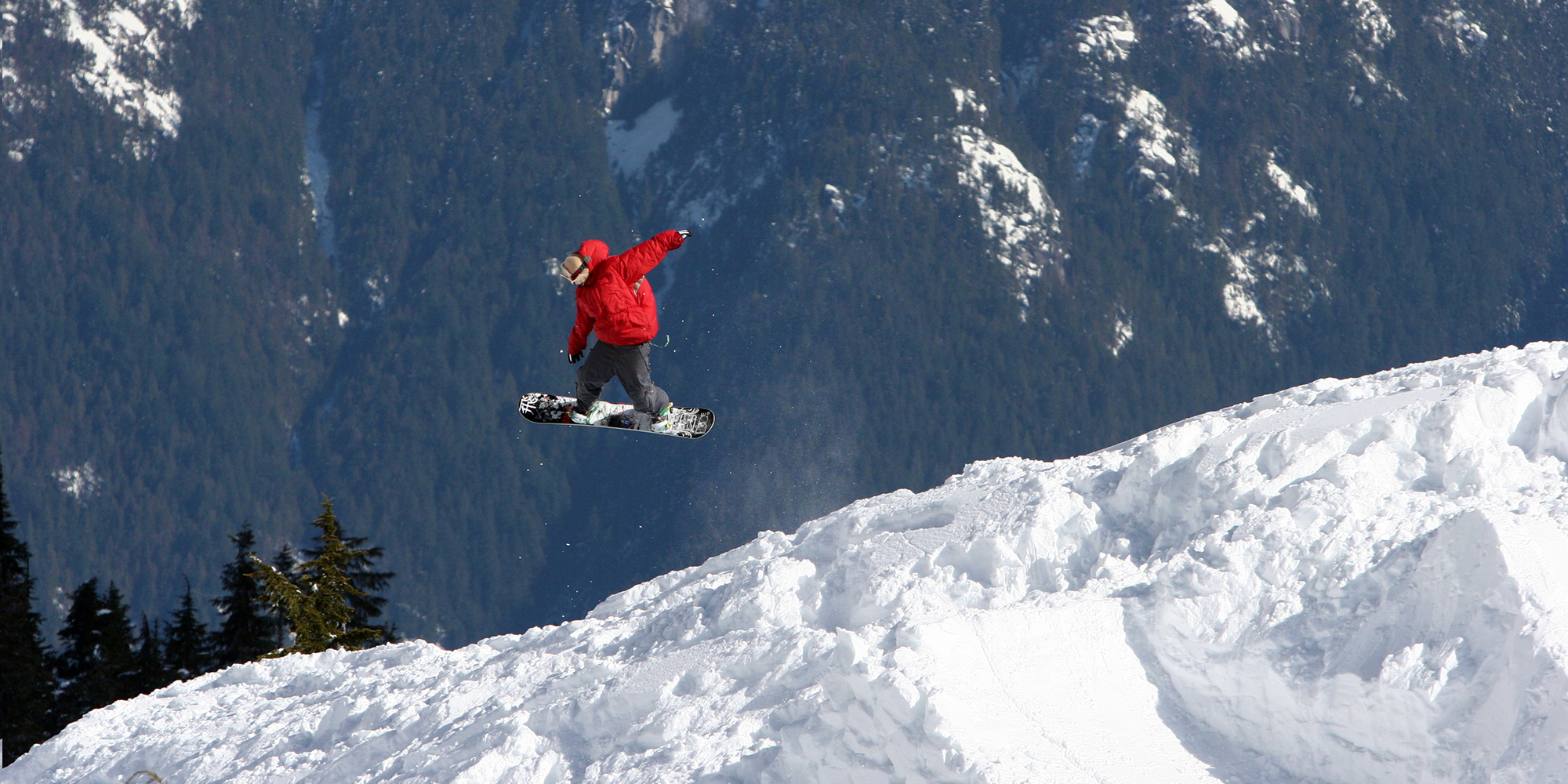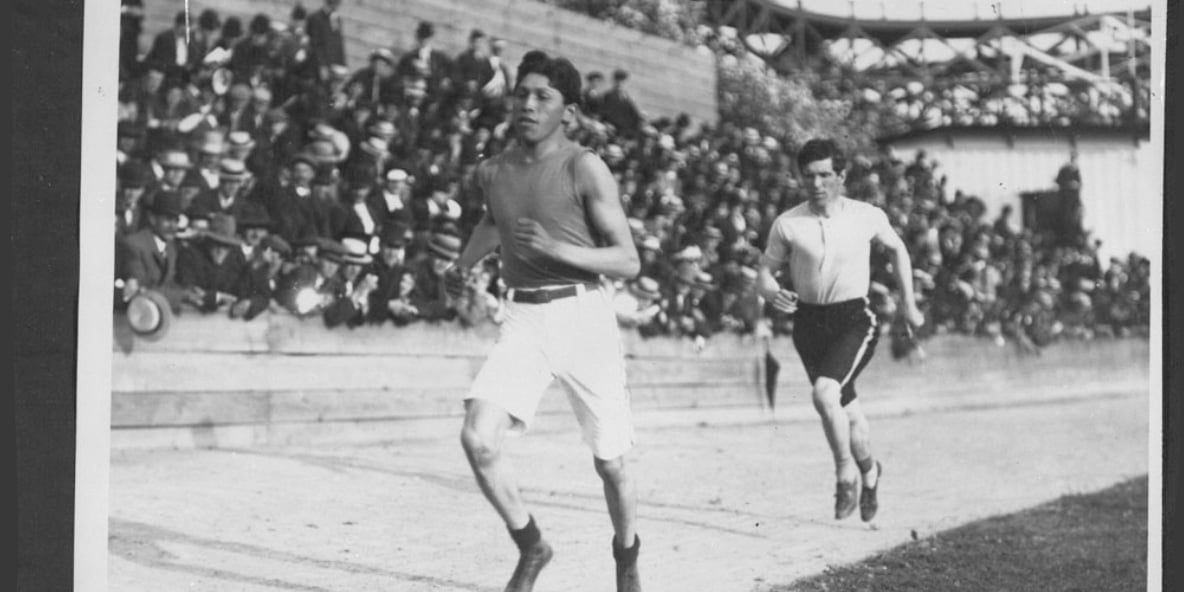Are There Aboriginal Athletes Participating in the 2012 Games?
Are there Aboriginal Athletes Participating in the 2012 Games? You bet there are!
7 min read
Bob Joseph June 11, 2020

Indigenous athletes often face tremendous difficulties beyond the rigours of training for their sport. They are frequently from geographically and economically challenged home communities which means access to elite training facilities and resources for training and travelling for training can be limited. During national and international competitions, they can be subjected to institutionalized racism and stereotyping.
The Truth and Reconciliation Commission of Canada included four calls to action for sports and recreation. Here’s just one:
87. We call upon all levels of government, in collaboration with Aboriginal peoples, sports halls of fame, and other relevant organizations, to provide public education that tells the national story of Aboriginal athletes in history.
When you read the short bios of these 21 athletes, think of the era in which some of the athletes, such as Tom Longboat and Joseph Benjamin Keeper, competed, and imagine the barriers they faced.
Andrea Alfred (1968-) Bodybuilding
Kwakwaka'wakw
Andrea Alfred started bodybuilding at 50 years of age, and took first place in her very first competition, the Popeye Fall Classic, which qualified her for the Nationals and Pro/Am competitions.
Caroline Calvé (1978-) Olympic Alpine Snowboard
Algonquin heritage
Caroline Calve won Gold in the World Cup PGS (parallel giant slalom) event at Carezza, Italy - becoming the first female Canadian alpine snowboarder to win a World Cup. She won a Silver medal at the same event the following year. And the year after that, in 2014, she won her second World Cup event, parallel slalom, in Moscow.
Jesse Cockney (1989-) Cross-Country Skiing
Inuvialuit
Jesse Cockney won three Gold medals at the 2011 Canada Winter Games and finished sixth in the classic sprint at the 2011 FIS World Under-23 Championships. He competed in two Olympic events: Sochi 2014 and PyeongChang 2018
Waneek Horn-Miller (1975-) Water Polo
Mohawk of Kahnawake
Waneek Horn-Miller first rose to fame during the Oka Crisis (1990). She was fourteen at the time and while passing through a crowd, carrying her younger sister, she was stabbed by a soldier’s bayonet which narrowly missed her heart. In spite of that life-threatening injury, she did not give up training and went on to be a Gold medalist in water polo at the 1999 Pan American Games and Co-captain of Canada’s first Olympic women’s water polo team (2000).
“She was a key player on the water polo team at Carleton University, where she studied political science (graduating in 2000). The team won the Ontario University Athletics championship in 1994–95 and 1995–96, and Horn-Miller became the first woman at Carleton to be named Female Athlete of the Year three consecutive times (1994–97). She was also named to the junior and senior All-Star Canadian water polo teams from 1991 to 1999. During this period, Horn-Miller competed at the North American Indigenous Games as well, winning 20 Gold medals between 1990 and 1997, including one in rifle shooting.” Waneek Horn-Miller
Sharon Firth (1953-2013) and Shirley Firth (1953-) Cross-Country Skiing
Gwich’in First Nation
Sharon and Shirley Firth were among the first Indigenous athletes to represent Canada at the Olympics. They competed in four Olympic Games (Sapporo (1972), Innsbruck (1976), Lake Placid (1980), and Sarajevo (1984) and are the only female Canadian skiers to do so. They are both Members of the Order of Canada; they both received the Golden Jubilee (2002) and Diamond Jubilee (2012) Medals and were inducted into Canada's Sports Hall of Fame (2015).
Joseph Benjamin Keeper (1886-1971) Distance Running
Norway House Cree First Nation
Joseph Benjamin Keeper was on the Canadian team that competed in the 1912 Olympic Games in Stockholm. He raced in the 5,000 and 10,000-metre races, finishing fourth in the 10,000-metre event which no other Canadian to date has managed to match or supersede. He is considered one of Canada’s greatest distance runners, is a member of the Canadian Olympic Hall of Fame and was inducted into the Manitoba Sports Hall of Fame in 1984.
Keeper joined the army in 1916, and as a member of the 107th Pioneer Battalion, his outstanding aptitude for distance running was put to use as a dispatch carrier. In 1917, he and Tom Longboat won the inter-Allied cross-country championship near Vimy Ridge.
Brigette Lacquette (1992-) Hockey
Cote First Nation and Métis heritage
Brigette became the first Indigenous athlete to compete on Canada’s women’s Olympic hockey team when she competed at PyeongChang 2018, taking home the Silver medal.
Allan Lafond (2002-) Football
Pasqua First Nation
Allan Lafond was nominated four years in a row for the 6 Nations Elite Development Camp, a First Nations camp to showcase talented football players from throughout the province; he made the top 100 player list for Football Saskatchewan in 2018. He has been recruited to play college football at Dalhousie University in Halifax
JR Larose (1984-) Football
One Arrow First Nation
JR LaRose played for the Edmonton Huskies for three seasons (2005-2007) and won the 2005 Canadian Bowl with that team. He spent nine seasons in the CFL with the Edmonton Eskimos and B.C. Lions, winning the Grey Cup with the Lions in 2011.
Reginald Joseph Leach (1950-) Hockey
Berens River First Nation
Reginald Leach, known as The Rifle because of his blazing shot, is the first Indigenous superstar in NHL history. He was one of the NHL's top scorers in the 1970s and early 1980s with 666 points (381 goals, 285 assists) in 934 games with the Flyers, California Golden Seals, Boston Bruins and Detroit Red Wings. He is the only forward in NHL history to win the Conn Smythe Trophy as the best playoff performer on a losing team, He was appointed to the Order of Canada for his work with Indigenous youth in sports, received an honorary doctorate from Brock University (he left school in grade eight); he has spoken at the United Nations about the importance of sports for Indigenous people worldwide, and he was inducted into the Philadelphia Sports Hall of Fame.
Tom Cogwagee Longboat (1886-1949) distance runner
Onondaga First Nation
Tom Cogwagee Longboat dominated distance races pre-World War I. He ran the 1907 Boston Marathon in a record time of 2:24:24 over the 24-1/2 mile course, four minutes and 59 seconds faster than any of the previous ten winners of the event. He became famous for his endurance and the way he finished a race with a spectacular burst of speed. He gave up his lucrative running career in 1916 to enlist in the Canadian Armed Forces where his endurance was invaluable as a dispatch carrier in France; he was wounded twice and declared dead once.
Alwyn Morris (1957-) Canoe-Kayak Sprint
Mohawk of Kahnawake
Alwyn Morris, with his kayaking partner Hugh Fisher, won Gold in the K-2 1000m and bronze in the K-2 500m at Los Angeles 1984 Olympics. While standing on the Olympic podium, Alwyn raised an eagle feather in acknowledgement of his heritage. The partners also won K-2 1000m Silver at the 1982 World Championships and qualified for the 1988 Seoul Olympics but were eliminated in the semi-finals for the K-2 500m. Alwyn is a member of the Order of Canada, was inducted into Canada’s Sports Hall of Fame, a 2-time winner of the Tom Longboat Award and recipient of the National Aboriginal Achievement Award (now Indspire), in the sports category.
Kenneth Moore (1910-1982) Hockey
Peepeekisis First Nation
Kenneth Moore is Canada’s first Indigenous Olympic Gold medalist. His team won Gold at the 1932 Lake Placid Olympics and were the only Canadians to reach the top of the podium during those Games.
Mark Vincent Perkins (1981-) Baseball
Métis heritage
Mark Vincent Perkins was a pitcher in the Caribbean World Series in 2009. He pitched in Rome for the World Cup of Baseball in 2009. He pitched for New Hampshire Fisher Cats, Toronto Blue Jays, Chicago Cubs and Iowa Cubs; he also pitched for Leones de Ponce, Dominican Republic.
Carey Price (1987-) Hockey
Ulkatcho First Nation
Carey Price is considered to be one of the best goaltenders in the world by many colleagues and fans, and one of the greatest goalies in the history of the Montreal Canadiens. He won Silver medals at the World U-17 Hockey Challenge in 2004 and the International Ice Hockey Federation (IIHF) World U18 Championship in 2005, and in 2007 he won a Gold medal at the World Junior Ice Hockey Championships in Sweden. Price was named to the Canadian Olympic Hockey Team in 2014 and won a Gold medal at the Winter Olympics in Sochi. He earned the tournament's top goal-tending award, from the IIHF directorate. In 2016 Price went undefeated to win his first World Cup of Hockey championship.
Gaylord Powless (1946 - 2001) Lacrosse
Six Nations of the Grand River
Gaylord Powless was the signature player on the Oshawa Green Gaels’ junior lacrosse dynasty of the 1960s. The Gaels won the Minto Cup all four years that he played on the team. He also won the 1971 Mann Cup and was a marquee player in three different professional leagues. Gaylord Powless and his father, Ross, are both members of the Canadian Lacrosse Hall of Fame and the Ontario Lacrosse Hall of Fame. In 2017, Powless was elected to Canada’s Sports Hall of Fame.
Spencer O’Brien (1988-) Snowboard
Haida and Kwakwaka'wakw heritage
Spencer O’Brien is a four-time Winter X Games Medalist and won the 2012 World Snowboarding Championships. In 2013, she won Gold at the FIS World Championships, helping her qualify for the 2014 Sochi Winter Olympics. In the 2015 Winter X Games, she became the first woman to successfully land a Backside 900 trick. O'Brien won the Silver medal during the 2016–17 FIS Snowboard World Cup.
Fred Sasakamoose (1933-2020) Hockey
Big River First Nation
Fred Sasakamoose was the first Indigenous hockey player in the NHL. In 1953, he was selected as the most valuable player in the junior Western Canada Junior Hockey League while playing for the Moose Jaw Canucks, scoring 31 goals in 34 games in the 1953-54 season. At the end of the season, he was selected by the Chicago Blackhawks, for whom he played 11 games. He became a member of the Order of Canada in 2018.
Mary Spencer (1984-) Middleweight Boxer
Cape Croker First Nation
Mary Spencer is a three-time world champion and five-time Pan American champion. She competed in the sport’s debut In the London 2012 Olympic Games and finished tied for fifth in the middleweight category. Spencer obtained an endorsement deal with CoverGirl and the company donated more than $140,000 towards her training for the Olympics. She is an Indspire Award recipient in the sports category in 2014.
Jim Thorpe Wa-Tho-Huk (1888-1953) pentathlon, decathlon, football, baseball, basketball
Sac and Fox Nation, Oklahoma
Jim Thorpe was one of the most versatile athletes of modern sports: he won Olympic Gold medals in the 1912 pentathlon and decathlon, and played American football (collegiate and professional), professional baseball, and basketball. He was the first Native American to win a Gold medal for the United States. In 1950, he was selected by American sportswriters and broadcasters as the greatest American athlete and the greatest gridiron football player of the first half of the 20th century.
At the Olympics, he won four out of five events in the pentathlon, winning the Gold medal. He then competed in the three-day decathlon, which is 10 events in all the major track and field disciplines. On the first day of competition, he ran the 100-meter dash in 11.2 seconds - a time that was not equalled until 1948. The next day, his shoes were missing so he wore two mismatched shoes found in the garbage. One shoe was too large so he wore extra socks to make it fit. Wearing mismatched shoes, he won the high jump and then won the 110-meter hurdles with a time of 15.6 seconds. No Olympic athletes matched that time for almost 40 years. On the third day, still wearing those mismatched shoes, he ran the final event - the 1,500-meter run in 4 minutes, 40.1 seconds. After his performance, King Gustav V of Sweden donned him “the world’s greatest athlete.”
Featured photo: Unsplash

Are there Aboriginal Athletes Participating in the 2012 Games? You bet there are!

We recently received a comment on our blog about Aboriginal athletes - why there aren’t more and why there aren’t any competing in the Sochi 2014...

To celebrate National Indigenous Peoples Day on June 21 we have compiled a list of 21+ important Indigenous people from all walks of life. It is a...